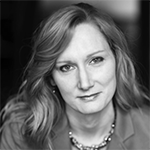
About
Cheryl Dahle is an entrepreneur and journalist who works at the intersection of business and social change. She is founder of Future of Fish, a non-profit innovation hub that supports the collective impact of entrepreneurs whose ideas help end overfishing. Previously, she was a director at Ashoka, where she distilled knowledge from 2,500 fellows to provide strategic insight to foundations. She spent a decade writing about technology, social entrepreneurship, and business for publications including The New York Times, CIO, and Fast Company, where she founded the Social Capitalist Awards. For her work with Future of Fish, Dahle was named a national “Eco-Innovator” by USA Today in 2013 and was a finalist in the Buckminster Fuller Challenge in 2012. She has also been a Change Agent in Residence with Bainbridge Graduate Institute and is the board chair of Criterion Institute. How did you first get involved in the green industry? Short version is that I’m a systems change junkie who stumbled into fish sustainability. The slightly longer version is here: http://futureoffish.org/resources/video/socap-2013-plenary-talk What interests you most about being green? Understanding the connections between what I purchase and consume, and the story of the land, sea and people that produced it. I believe in the Buddhist concept of “interbeing.” If you eat a tomato picked by an indentured servant, you’re eating suffering. What is your biggest “green” pet peeve? Plastic bags. Too many of them wind up in the ocean killing marine animals or birds. Even if you bring your own bags to a shop, retailers in the Midwest practically leap across the checkout counter to shove bags in your pockets. Most groceries don’t even have a paper alternative. What green trend is most exciting to you or your industry? Supply chain traceability. With better technology we could reduce or eliminate mislabeling, illegal fishing, and modern day slavery in the fishing industry.Episodes
-
September 1, 2014
Putting a Stop to Overfishing with Future of Fish’s Cheryl Dahle
Future of Fish aims to reduce or eliminate mislabeling, illegal fishing and modern day slavery in the fishing industry.